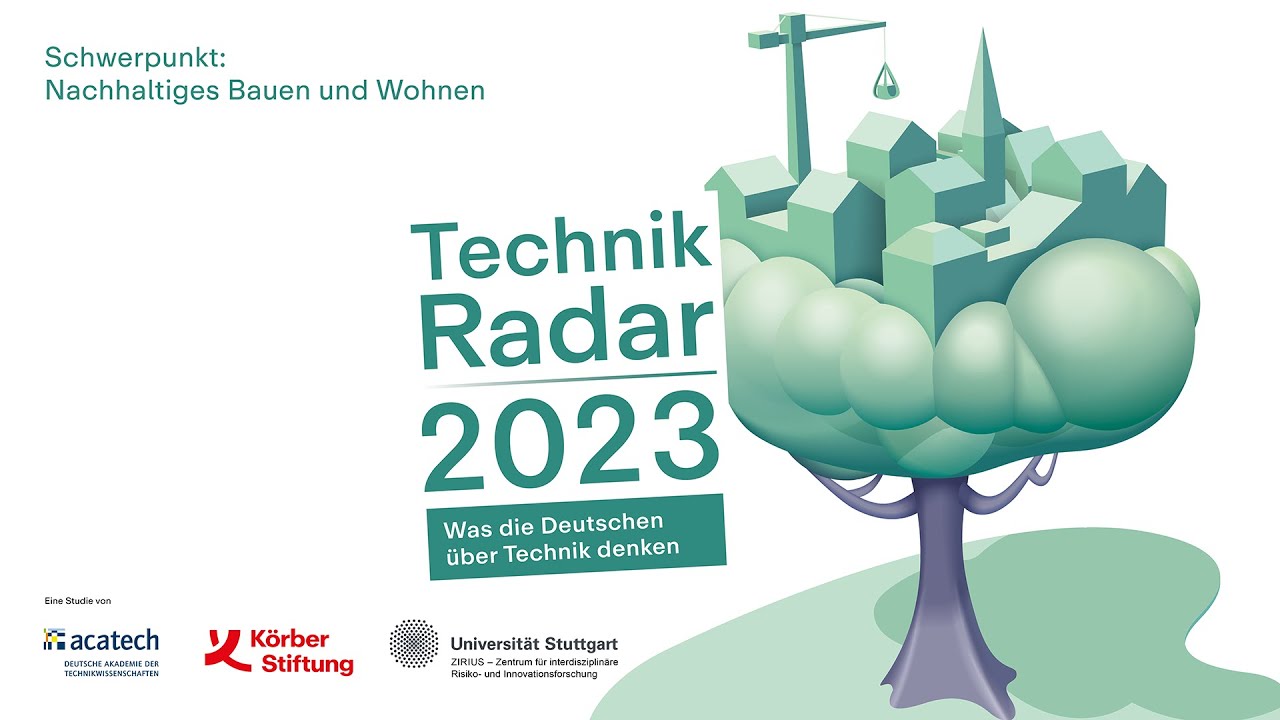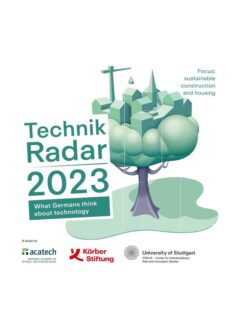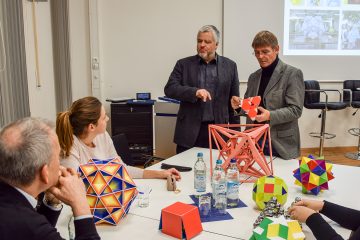TechnikRadar 2023: Presentation in Stuttgart

Munich, 28 June 2023
The German Sustainable Building Council (Deutsche Gesellschaft für Nachhaltiges Bauen, DGNB) held its Sustainability Day on 20 June in Stuttgart. This proved to be a suitable occasion on which to introduce TechnikRadar (Technology Radar) 2023 – Sustainable Construction and Housing, a representative survey of the German population conducted by acatech, the Körber Foundation and the Center for Interdisciplinary Risk and Innovation Studies (Zentrum für interdisziplinäre Risiko- und Innovationsforschung, ZIRIUS) at the University of Stuttgart. An audience of more than 200 followed the presentation of results by project manager Cordula Kropp and the subsequent panel discussion.
In his introductory remarks, Matthias Mayer, head of the Science Department at the Körber Foundation, said that TechnikRadar had been tracking the attitudes of Germans towards technology since 2018 – not just generally but also with a view to the concrete manifestation of technology. Borrowing from Ernst Bloch, he stated that these “concrete utopias” were to be the subject of the evening’s discussion.
Project manager Cordula Kropp from ZIRIUS then stressed that the results of the study had not been affected by the highly charged debates on heating of recent weeks, as the representative survey had already been conducted in autumn 2022.
In addition to ascertaining the attitudes of German people towards the main topic of “construction and housing”, TechnikRadar 2023 also once again posed general questions on attitudes towards technology. When asked about the most key issue for the future, participants in the study have consistently ranked the safeguarding of jobs in first place; this ranking applies across all age groups and has remained unchanged since the first edition of TechnikRadar.
The survey also shows that a relatively high importance is attached to energy policy issues of the future, such as greater independence from energy imports and a reduction in energy consumption. When asked more specific questions, Germans seem to be very aware of these topics: when questioned about their evaluation of the benefits of various initiatives, it was clear that, especially in the case of renewable energies, particularly positive benefits are perceived in the renovation of buildings and the use of environmentally friendly means of transport.
More than two-thirds of Germans (67%), especially older people and low-paid workers, would like to have a greater say in the implementation of such technologies. During the discussion that followed, acatech President Jan Wörner pointed out that, in order to satisfy the desire of the population to help shape these technologies, policymakers must gain the active support or active participation of the population, instead of simply relying on the acceptance of measures or even seeing the population as “passengers in the taxi” who only need to be “collected” or “taken along for the ride”, without knowing where the destination was.
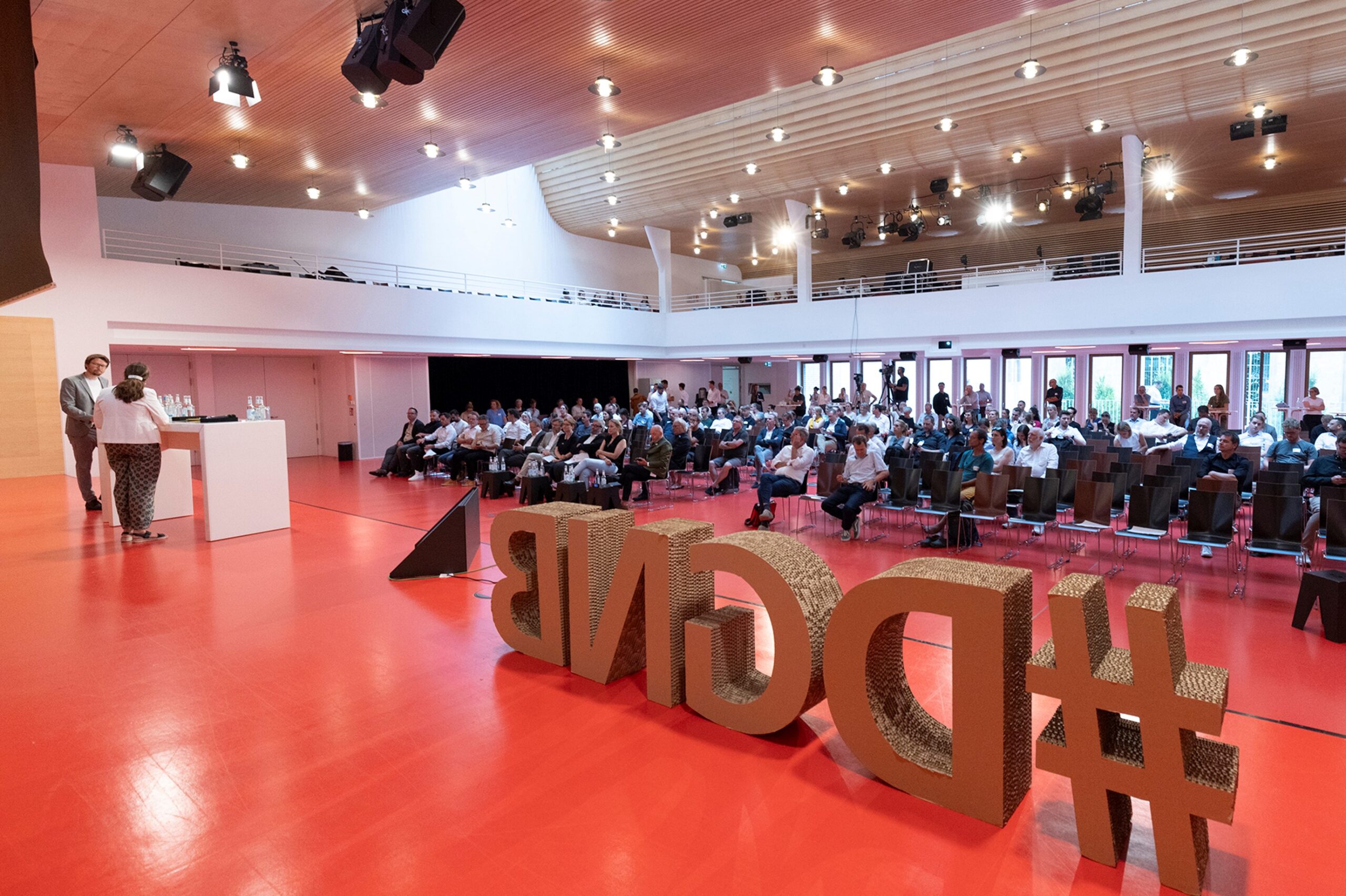
TechnikRadar also surveyed the housing aspirations of Germans. They cite “price”, “being surrounded by nature” and “energy efficiency” as their most important evaluation criteria. So far, so predictable, including for Andrea Lindlohr, State Secretary at the Ministry of Regional Development and Housing in Baden-Württemberg, who also participated in the discussion. However, she and the other panellists were surprised that proximity to a city centre was only of secondary importance.
As the discussion continued, it became clear that there was a dilemma at the heart of the current public debate. While the TechnikRadar results indicate that people are definitely prepared to carry out energy-related refurbishments, make investments or reduce their own consumption, the question remains of the extent to which these intentions can be translated into actions: a large proportion of the population states that they do not have the budget to implement energy-saving measures. According to Cordula Kropp, who headed up the study, an average amount of EUR 13,250 over 10 years to to improve energy efficiency is not nearly enough to install a PV system or replace a heating system.
Members of the audience had an opportunity to participate in a poll in advance of the event and to answer three questions from the TechnikRadar survey themselves. Both the evaluation of the benefits or risks of initiatives to resolve social problems and the consequences of the use of construction robots were given a largely similar assessment by the expert audience and the general population. There were much more striking differences in the willingness to provide personal mobility, energy and building data in anonymised form so that this data could be evaluated and processed for “smart city” applications, for example, and thus help to facilitate and accelerate activities such as urban planning processes. On average, those present at the event agreed much more readily than the general population. The expert audience also showed a much greater interest in gaining an insight into this data, as such access means that the processing of orders can be linked more effectively with local implementation.
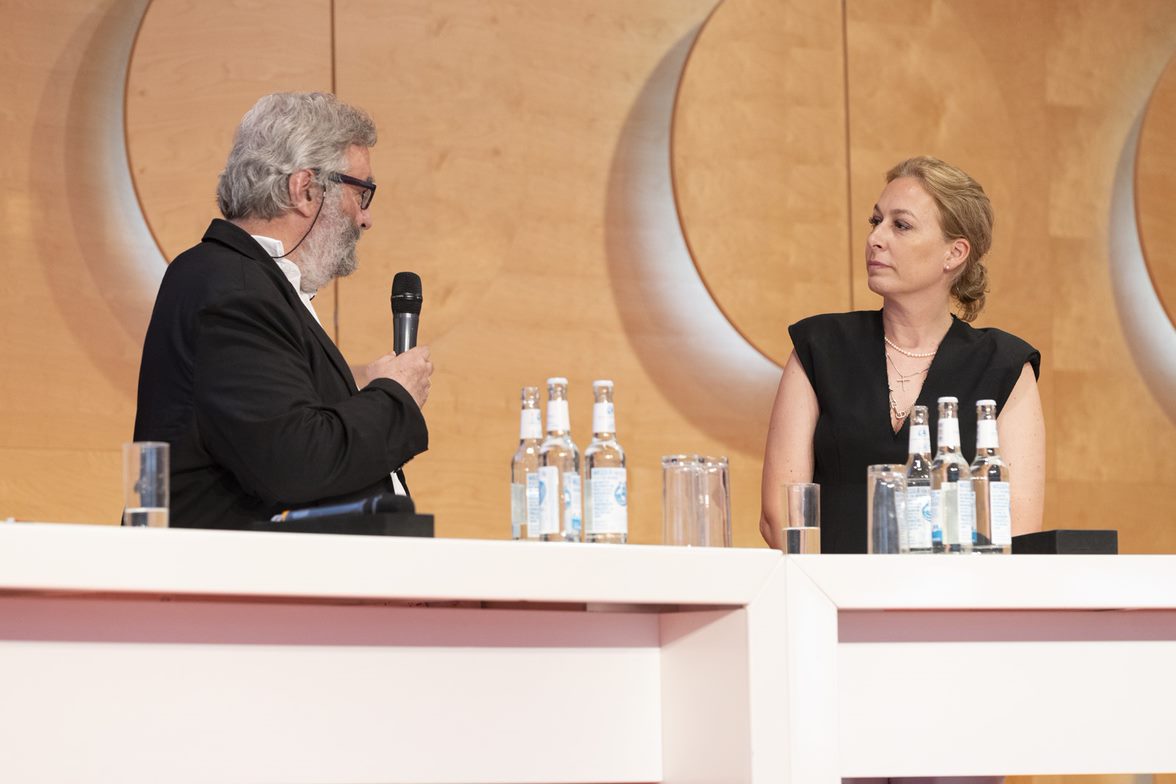
In the second part of the panel discussion, Klaus Beckmann, a transport researcher and acatech member, and Christine Lemaitre, CEO of DGNB, joined the panel and discussed the courses of action that could be derived from the results. It was clear that a way had to be found to deal with the “attitude-behaviour gap” that had been observed. The panel concurred that responsibility in this regard could not fall solely on the shoulders of citizens. While citizens had to be provided with ongoing education, manufacturers and companies were also obliged to provide better information and guidance.
Jan Wörner concluded the discussion by pointing out that the willingness to act shown by the population in the TechnikRadar results now had to be taken by policymakers as an opportunity to make changes in the areas of housing, construction and energy.


